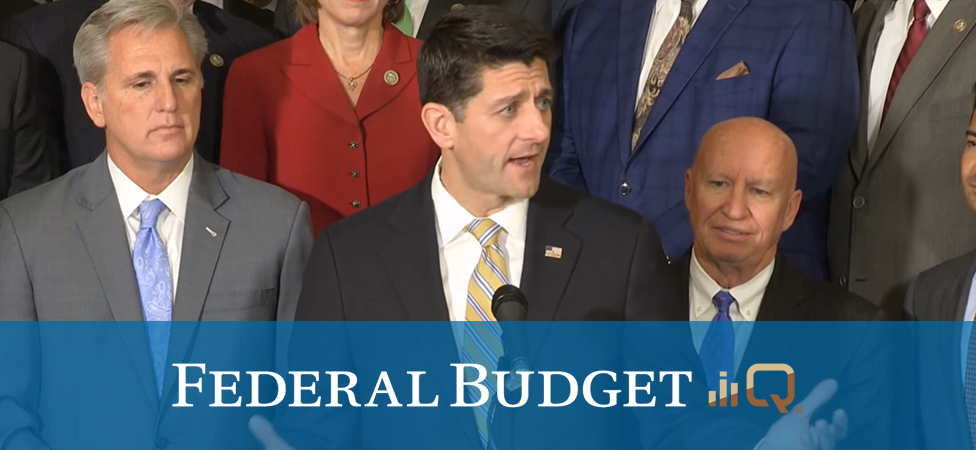

A series of actions by Congress and the Administration in recent weeks reinforce key elements of our spending forecast.
First, senior Congressional staff have confirmed that the starting point for negotiations on a 2-year Budget Control Act (BCA) spending cap-boosting deal is $182 billion. Our June forecast called for a $150-250 billion deal. Based on recent events, we now expect spending increases to exceed $200 billion. At least two more Continuing Resolutions (CRs) will be needed before FY18 Appropriations are finalized for most agencies.
Forecast
90% Before the end of December, a 2-year spending deal emerges that boosts current BCA spending caps by over $200 billion
Second, we forecast that final FY18 defense spending levels would exceed the $575 billion total proposed in President Trump’s FY18 Budget. Following last week’s passage of the FY18 National Defense Authorization Act (NDAA), House and Senate Armed Services Committee Chairmen Thornberry (R-TX) and McCain (R-AZ), issued a joint statement noting, “Large majorities on both sides of Congress have voted multiple times to support a $700 billion defense budget, including overwhelming, bipartisan votes in the House and Senate this week in support of the Fiscal Year 2018 National Defense Authorization Act.”
Forecast
80% Final FY18 Department of Defense (051) base spending levels exceed $600 billion
Third, in June, we noted that failure to repeal the Affordable Care Act increased the cost of tax reform $1.1 trillion. Republican leaders quickly switched to Plan B: passing a “shell” FY18 Budget that allows them to consider a tax reform bill that increases projected deficits by $1.5 trillion over 10 years using traditional Congressional Budget Office (CBO) scoring techniques. Because several Congressional Republicans care about debts and deficits, this approach reduces their margin for error for tax reform adoption, particularly in the Senate. On November 16th, the House voted 227-205 to pass the Tax Cuts and Jobs Act (H.R. 1). Alabama’s December 12th special election to fill the Senate seat vacated by Attorney General Sessions increases pressure on Senate Majority Leader McConnell (R-KY) to get a tax bill through the Senate before Christmas. With a close election expected, it’s unlikely that Alabama’s next Senator takes the oath of office before December 26th.
Forecast
75% Congress completes action on tax reform by January 31st
Fourth, three powerful hurricanes struck Texas, Florida, Puerto Rico and the US Virgin Islands and western wildfires inflicted billions in damage. Congress has already provided $51.8 billion in BCA-exempt disaster relief. On November 17th, OMB submitted a request to Congress for an additional $44 billion, far short of the requests from the impacted areas. We expect Congress to increase the Administration’s request by a substantial margin. These deliberations mean that Congress is unlikely to complete action on the next disaster relieve installment by December 8th.
In the short-term, spending hikes and tax cuts boost economic growth but with a price. Rising federal debt and deficit projections will push interest rates higher.
The stakes are high, particularly for House Speaker Ryan (R-WI) and Senate Majority Leader McConnell (R-KY). Failure to enact tax reform increases prospects for Democrats to regain control of Congress in the 2018 mid-term elections.